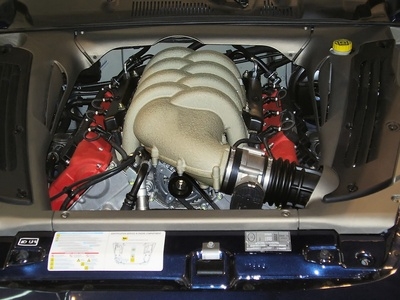
Diesel engines have a reputation for acting up in cold weather, even TDI diesel engines. As a general rule, diesel engines are harder to start when cold than gasoline engines. When starting your diesel engine in cold weather consider such things as the quality of diesel fuel used to power your engine, the strength of your battery and the temperature of your engine at the point of combustion where your engine turns fuel into power.
Keep your car in the garage overnight. Even the slightest temperature gain from keeping your diesel car in the garage will help your engine to start in the morning.
Visit gasoline stations that are used regularly, as the underground tanks of these stations will be recently filled with "winter" diesel. More remote stations may still have "summer" diesel, which thickens in cold weather. Filling your car with diesel from the right spots can help you start your car in cold weather.
Charge your battery when you feel a cold snap hitting. The battery performs less efficiently in cold weather, so it requires more power to run. Also, oil is thickened by the cold, causing the engine to require more power to crank, power that is provided by the battery.
Allow the glow plug to light. All diesel engines have a glow-plug system to heat the point of combustion in the engine. Give the glow plugs the necessary time to heat up before trying to start the engine. This is done by turning the key one notch to start the electronics, but not the engine. Start the engine when the glow light has been on for about 10 seconds.
Service your car before the winter comes. There are gaskets, temperature gauges and warning lights that are vital in detecting and warning you of problems relating to the cold weather. You need to ensure your car is in top condition heading into the winter.